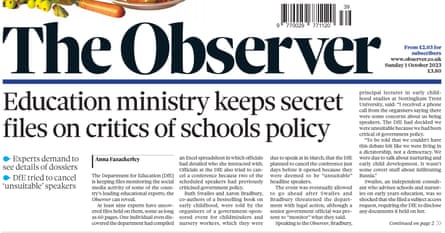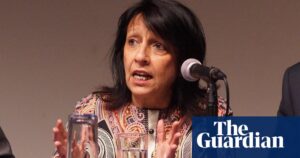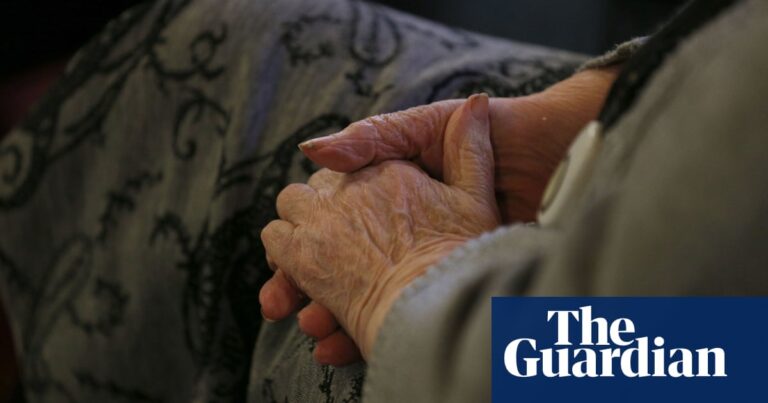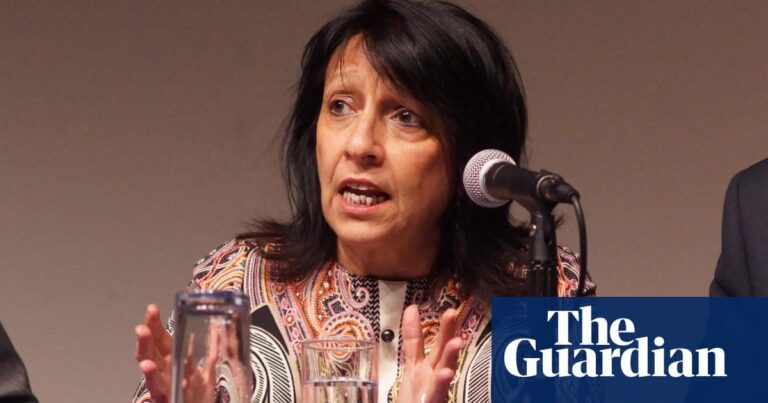According to the Observer, a total of fifteen government agencies have been keeping track of the online actions of individuals who may criticize them. These agencies have been creating confidential documents with the intention of preventing these individuals from participating in public gatherings.
According to the regulations set forth by various departments such as health, culture, media and sport, and environment, food and rural affairs, officials are instructed to review the social media profiles of experts on platforms like Twitter, Facebook, Instagram and LinkedIn. They are also directed to search for specific phrases like “criticism of government or prime minister” when using Google to research these individuals.
The rules aim to prohibit individuals who have voiced dissent towards the government within the last three to five years from participating in government-run conferences and other gatherings.
In September, it was reported by the Observer that three experts in early childhood education found out that the Department for Education attempted to retract their invitations to speak at events funded by the government. This was due to their criticism of government policy. Several other education experts and school employees have also discovered that the department has files containing their critical posts on social media.
It has been recently discovered that this practice is common throughout the government and likely affects a significant number of people. The extent of the surveillance was revealed by human rights professionals at Leigh Day law firm and reported to the Observer.

The disclosures will be extremely humiliating for the Conservative party, which often prides itself on promoting freedom of speech and has criticized universities for permitting students to silence experts they do not agree with.
Tessa Gregory, a partner at the law firm Leigh Day, is representing at least two experts in legal action against the government. She stated, “This could have affected a significant number of people, and many may not be aware that government officials are keeping confidential files on them. These actions are highly concerning.”
Gregory argues that these covert assessments are illegal, violating data privacy regulations and possibly infringing on laws regarding fairness and individual rights.
Chemical weapons specialist Dan Kaszeta was uninvited from delivering a keynote address at a defense conference in the UK due to his social media posts criticizing Tory ministers and government immigration policies. According to Kaszeta, he is aware of 12 individuals who have also experienced government blacklisting for similar reasons, but many are hesitant to speak out due to fear. He also believes there are likely others who were not aware that they were subjected to secret vetting.
He stated that the situation is quite alarming and may not be completely understood. He was fortunate to have received undeniable and obvious proof. It is truly terrible.
Kaszeta enlisted the services of Leigh Day to challenge the government in court, triggering the release of information regarding its surveillance practices. This ultimately led to confirmation in August that 15 departments had suspended these policies while the Cabinet Office conducted a review. In July, he was issued a formal apology from the government.
“I am not obligated to be impartial, and I have no intention of doing so,” stated Kaszeta. “It is completely incorrect to try and apply the civil service code to me simply because I am speaking to a small group of civil servants. I am not a radical Trotskyite.”
The Observer has obtained information about the monitoring guidelines utilized in various governmental departments.
The departments of Defra, DCMS, and the Department for Business and Trade have all advised that in addition to monitoring social media, officials should also conduct a thorough search on Google. Helpful search terms may include “government or prime minister criticism”.
According to the DCMS, it is advised to review “five to 10 pages of results” for a span of three to five years. Officials are instructed to maintain a file on the person and document this information for future use.
The DfE has guidelines in place for screening speakers at its stronger practice hubs, which are designed for nursery staff throughout England. These guidelines state that individuals who have expressed criticism towards the DfE or its early years policies should not be invited to speak. Additionally, individuals who have left positive comments on negative posts by others are also deemed unsuitable to speak.
The Department for Education (DfE) provided guidance, which was reviewed by the Observer, advising to search for details about potential external speakers from the past five years and to check their social media. However, in a response to a Freedom of Information (FoI) request from Privacy International last year, the DfE stated three times that it does not monitor, investigate, or gather information on members of the public.
Caroline Wilson Palow, the legal director of Privacy International, has been researching the government’s use of social media monitoring for several months. She expressed concern over the government potentially blacklisting individuals for exercising their right to free speech, stating it could have dangerous implications.
She stated: “Actively seeking out negative information in this manner is considered targeted surveillance.”
Lord Wallace of Saltaire, a member of the Liberal Democrat party, organized a discussion in the House of Lords regarding the government’s social media screening process following the blacklisting of Kaszeta. He expressed concern over the idea that only those who share the same views should be allowed to participate in policy discussions.
He stated that evaluating professionals went against the principles of diversity and inclusion and was a significant misuse of government employees’ time.
According to Jonathan Wolff, a professor at the University of Oxford, it demonstrates weakness to ignore challenges and shows even greater fragility or petulance to disregard criticism on one issue because of criticism on another.
According to Smita Jamdar, a partner at Shakespeare Martineau law firm, who has been providing guidance to universities on avoiding conflict with the government’s new “free speech tsar” for higher education, the inconsistency is remarkable.
A representative from the Cabinet Office stated that civil service events must align with the civil service’s commitment to impartiality, as anticipated by the general public.
He stated: “The government is dedicated to safeguarding freedom of speech. We are examining the instructions and have currently retracted them in order to avoid any misunderstanding of the regulations.”
Source: theguardian.com
















